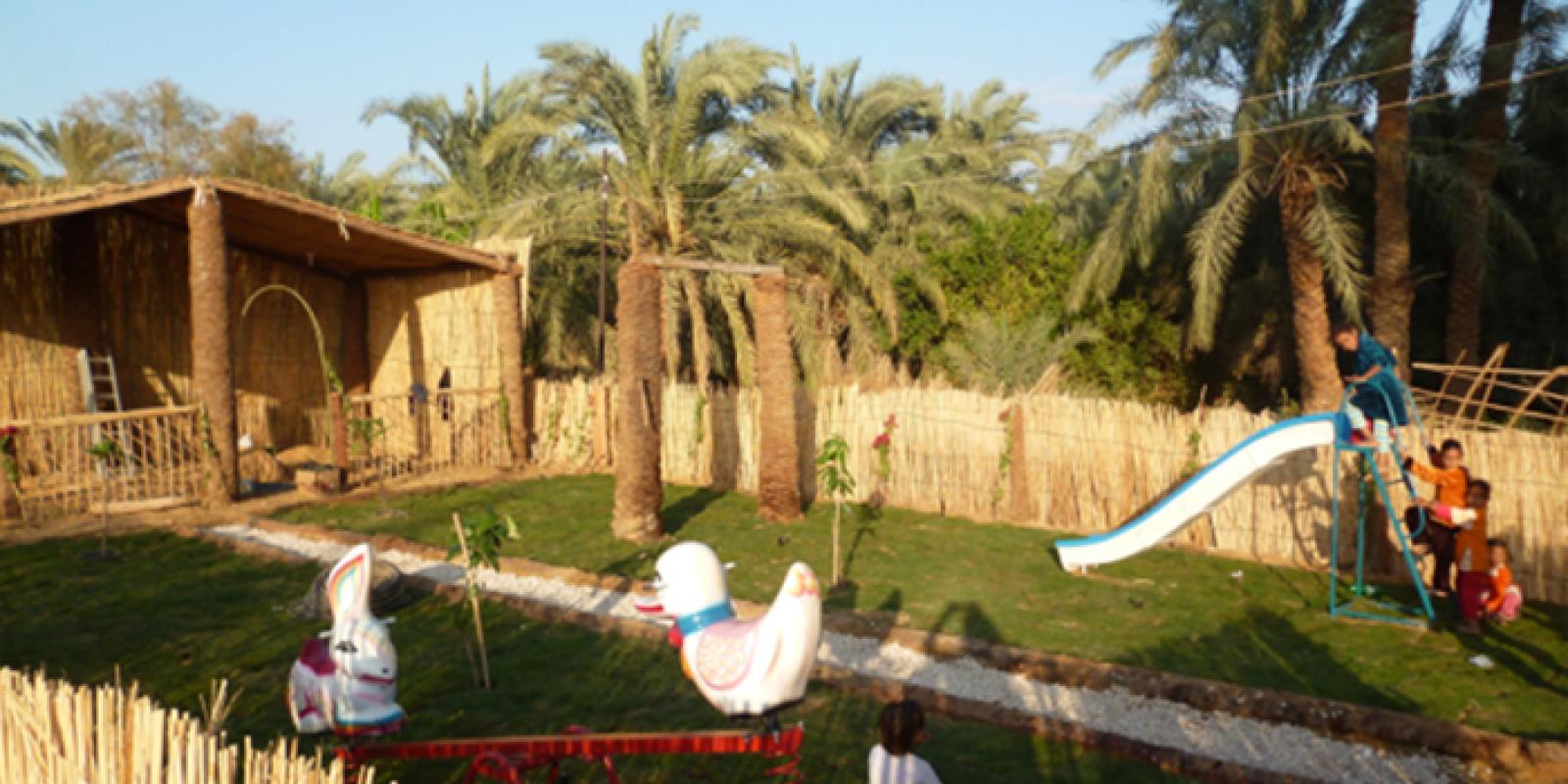
New Irrigation System, First Community Garden in Western Desert Oases
The Research Institute for Sustainable Environment (RISE), formerly the Desert Development Center, has successfully installed a new drip irrigation system, including pop-up sprinklers, and established two community gardens in the Western Desert oases of ElHeiz and Abu Minqar, utilizing grey water from the local mosques for irrigation. The gardens' playground, equipped with a slide, seesaw, palm tree swing, grass, trees and blossoming plants, are the first in both villages.
Explaining the importance of this initiative, Hassan ElHusseiny, water management specialist at RISE, noted, “This project looks for ideal and sustainable use of scarce waters. In both communities, sewage water runs into and pollutes main water streams. We decided to filter the ablation grey water, usually lost in sewage water, to isolate sediments and tackle bacteria through ultraviolet filtration. The result is a water efficient and green leisure space in communities where such spaces are rare.”
Both oases rely on the finite and non-renewable Nubian Sandstone Aquifer as their sole or main source of water, creating a need for sustainable water management techniques to be used in agriculture, irrigation and domestically. “RISE has been active in encouraging sustainable water management, grey and drainage water recycling, and adding steps to the water utilization process to make sure the most is made out of every drop of water,” said Tina Jaskolski, RISE research coordinator and project manager.
In Abu Minqar, where the former Desert Development Center had been active since 2006, RISE transformed a large free space between a newly built mosque and a soon-to-be-opened children’s day care center into a central community garden, where children can use the swing, seesaw, slide and bench. The building process was a community effort, with the local carpenter manufacturing the palm tree swing, the wooden fence and the benches. RISE organized a fence painting event for village children to give the garden a colorful fascia. “It is a place for leisure -- a rare amenity in Abu Minqar,” said Magdy Mubarez, a resident of the oasis.
Similar efforts were made in ElHeiz oasis. “In ElHeiz, the garden used to be a garbage dump. It is now a central community garden fully equipped with a wooden shed made of local palm trees for elders to rest and meet, and events to be held in," said Jaskolski, adding that the gardens in both ElHeiz and Abu Minqar will be managed by the local communities.
Funded by HSBC, both community gardens are part of a larger sustainable water management project that RISE is implementing.
